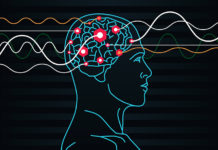What I’ve Learned about Tapering Psychiatric Drugs—A Holistic Therapist’s Perspective
Liberation from pharmaceuticals is possible, but it is not an easy journey. I advocate for informed consent.
I Talked About Mad in America on WNYC’s The Brian Lehrer Show!
Hey I did an interview this morning on WNYC about my new book, Maps to the Other Side, and told the thousands of listeners to check out the Mad in America website if they want strong and articulate views on what's happening in the world of mental health. I have this exciting feeling that the Icarus Project underground culture is breaking up out of the pavement and crossing paths with the mainstream. Check out the interview here and tell me what you think!
Using Formulation to Change Team Cultures
I am returning to the subject of psychological formulation after rather a lengthy gap, during which controversy about the forthcoming 5th edition of DSM has continued to grow – sign the petition ‘Stop the Insanity’ at www.dsm5response.com if you share others’ concerns about the creeping medicalisation of everyday life and the risks that it poses.
A Tale of Two Paradigms
Two recent mental health reports from Oregon are steeped in the medical model, written by "experts" without lived experience and sponsored by the pharmaceutical industry.
Psychiatric Diagnoses: Labels, Not Explanations
It has long been my contention that psychiatric "diagnoses" have no explanatory value, and in fact constitute nothing more than vague, unreliable re-labeling of the presenting problems. The only evidence for the so-called illness is the very behavior that it purports to explain. There is nothing more to it than that. Psychiatry consistently fails to respond to this particular criticism, and with equal consistency presents these labels as if they did have explanatory value.
“Breakthrough” Treatment for Postpartum Depression: Game Changer or Misguided Magic Bullet?
Ultimately, the FDA Advisory Committee recommended approval of brexanolone by a 17-1 member vote. I was the only NO vote. I voted NO because as the sole Consumer Representative on the committee I didn’t believe the company had demonstrated that the potential benefits outweighed the potential for harm.
Greed Disguised as Science: How a Multitude of Factors Led to the Opioid Crisis
Opioids are now the leading cause of mortality from overdose, accounting for 91 deaths every day. The context and key players that created and contributed to the opioid epidemic must be brought into sharp focus if we are to have any hope of stemming the tide of this public health crisis.
Informed Consent Must Reflect Information from Online Withdrawal Forums
Online withdrawal forums document an assortment of risks associated with discontinuation of psychiatric drugs. Such information is readily available and must be disclosed during informed consent.
Taking Big Pharma to Court: Why Lawsuits Have Little Effect on Drug Companies
2018 has already brought particular attention to the pharmaceutical industry’s “profit over patient” mentality, as drug manufacturers and distributors continue to be hit with civil cases throughout the country for their involvement in the opioid epidemic. But the sad fact is that these lawsuits are nothing new.
End Kendra’s Law Now: Racist, Classist Practices in Involuntary Psychiatry Persist
In addition to involuntary outpatient commitment being an assault on and targeting people who are living in or near poverty, the statistics demonstrate racial disparities in the application of involuntary outpatient commitment.
Book Review: The Importance of Suffering
This is a very important, well-written book which should become essential reading for anyone involved in the healing arts, since suffering is - or should be - at the heart of our endeavors. Suffering tells us what’s really important to us, and our approach to it tells us what we’re really made of.
Toxic Interactions: Social Circumstances and Well-Being
Social circumstances are indisputably connected to psychological well-being, but this has gained no traction in policy and service provision.
Mental Health Survival Kit, Chapter 2: Is Psychiatry Evidence Based? (Part 3)
Virtually every single placebo-controlled drug trial in psychiatry is flawed, systematic reviews of trials are also flawed, and guidelines are flawed. Even the drug approval process is flawed.
Why We Must Strike the Terms “High Functioning” and “Low Functioning” from Our Vocabulary
As I have various discussions about mental health and disability on the internet, I am disturbed at how many people continue to use the terms “high functioning” and “low functioning” when referring to people with psychiatric or other disabilities. I have heard people refer to their family members as “low functioning.” I have seen these terms used by advocates to bully and discredit other advocates who critique calls for increased levels of involuntary treatment as “high functioning” individuals who don’t know what they’re talking about.
Hospitalization: A Crisis in Crisis Care
This Wednesday, March 19th I will be speaking with the wonderful folks at Rethinking Psychiatry in Portland Oregon. These amazing individuals are working on reforming the mental health system and creating practical alternatives such as a Soteria-based housing model in the community. As I look at the present state of how we help people in severe emotional crisis I see enormous problems from beginning to end. I want to outline some of those main problems and then look at some ways we could work to reform them.
Media’s Failed Approach to Madness, Parts 1 & 2
This past year has been a terrible year for mental health in the news and other media. The most prevalent and widely publicized messaging has been heartily encouraged by national lobbying groups that "advocate" for expanded treatment of what they have deemed "severe diseases of the brain." Psychiatrists and proponents of the medical model are calling for what is basically a soft re-institutionalization of people deemed mentally ill, particularly those with diagnoses erroneously assumed to be “treatable, but not curable.” This perspective is dangerous. It supports violence and abuse. It feeds fear and delusion.
It is not helpful.
Remembering Jay Mahler
“I’ve spent 58 years in the public mental health system—10 years surviving it and 48 trying to change it.” That’s how Jay Mahler—psychiatric survivor, activist, leader—described his experiences.
September 21, 2010
Dear Bob:
Today, fittingly, was a very psych heavy day at my clinic. I saw the whole gamut of patient situations, patients (and their conflicted...
Thou Shall Not Criticize Our Drugs
A medical journal is expected to promote an open-minded discussion of treatments, even if findings—or criticisms—threaten conventional beliefs. But the American Journal of Psychiatry will not find space for criticism even if it comes from one of the best-known psychiatrists in the world.
Upon Leaving Soteria-Alaska
Soteria-Alaska, a program modeled after the highly effective Soteria developed in the 1970s by the late Loren Mosher, M.D., opened its doors in 2009. It is also impossible to convey the actual simplicity which in fact is the crowning jewel of the Soteria approach. A conservative review of the effectiveness of the Soteria approach revealed that it is at least as effective as traditional hospital-based treatment — without the use of antipsychotic medication as the primary treatment. Considering that people treated in the conventional way die on average 25 years younger than the general population, this is a substantial finding.
Antidepressant Withdrawal: A Clinician’s Middle View
In the debate about antidepressant withdrawal, I present a middle ground, where the views of both sides are understood to have origins in wanting to help people.
Neurofeedback is Not For Everyone: The Dangers of Neurology
One thing I noticed, from the moment that I stepped out of my psychiatrist’s office, was how strangely blank and yet clear my mind was. I felt surprisingly calm and relaxed, and I decided to go back for another treatment the next week. What I couldn’t have known then was that after that next “treatment,” life would be completely destroyed for me.
The Taper
Part of what has scared me straight about ever starting a patient on an antidepressant (or antipsychotic or mood stabilizer) again is bearing witness to the incredible havoc that medication discontinuation can wreak. I am half way through the first e-course of its kind (on withdrawing from psych meds), and it has been incredibly well-received. There are so many people out there, disenfranchised by psychiatry, skeptical of its promises, and who want a better way, a more thoughtful assessment of them as whole persons. We seem to be onto something here, so let’s keep the dialogue flowing, keep our eyes wide open, and reform what psychiatry means, one patient at a time.
From Auctions to Moral Treatment
In less than 25 years Oregon moved from auctioning off the “care” of the "insane" to the lowest bidder to creating a safe place focused on recovery.
Insane Medicine, Chapter One: The Medical Model of Mental Health Is Finished
The concepts we use have undermined our natural resilience, sensitised us to an idea of our vulnerability, and encouraged us to transfer our agency to practitioners who use a system as if it has scientific validity and is clinically useful.
























